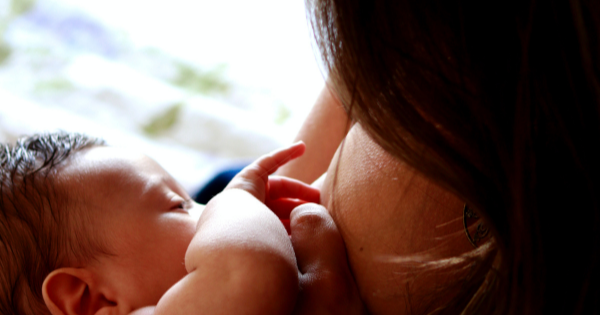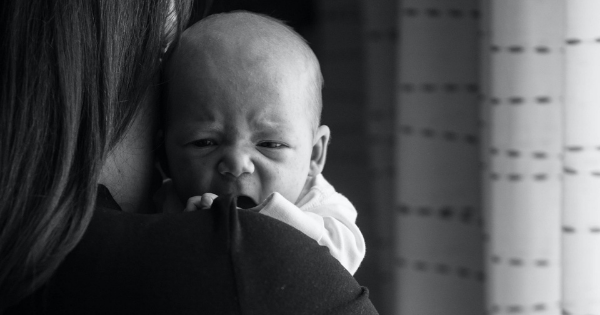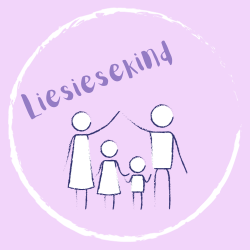In today’s post, I will be sharing seven reasons why your newborn cries. Newborns typically spend two to three hours per day crying which can be distressing for us parents and our little ones. Sometimes babies cry for no apparent reasons, while other times they are crying for a specific reason. Here are some reasons why your baby might be crying.
7 Reasons Why Your Newborn Cries

My final thoughts before being pushed to the theatre for my C-section were: “This is it. When I come back to my room, my baby will be born. How will I know what to do? What if I don’t know why he is crying?” This is why I wanted to write this post because I am 100% sure I am not the only parent that had a fleeting moment of panic. There are usually three obvious reasons why babies cry, hunger, fatigue, or a soiled or wet nappy. With a bit of maternal instinct, sleuthing, and common sense, you might be able to quickly figure out how to offer comfort to your newborn. Here are five reasons why your newborn cries.
Hunger
During the fourth trimester (first three months after the baby is born), a baby tends to feed frequently, around every two hours. When a baby wants to feed, he will make low-pitched, short cries that go up and down.
Offer his bottle or your breast to see if he wants to feed. Even when a baby is not hungry, he might just want comfort by sucking on something. In this case, sucking on a pacifier or his own thumb might help.
Remember, sometimes babies cry if they are fed too much. Too much milk can result in discomfort. Thankfully, the tummy bloating does not last for long.

Fatigue
Unlike adults, when a baby is overtired or overworked, he becomes fussy instead of simply drifting off to sleep. Swaddling is one of the most effective ways to get a baby to fall asleep. They’ve spent nine months in your womb in a tiny space which made them feel safe and protected. By wrapping them snugly in a baby blanket or swaddle with only their neck and head sticking out, it helps to mimic a mother’s womb. A change of scenery might also be effective. Some parents find going for a drive or walking with their newborn in his stroller also helps.
A Wet or Soiled Nappy
Whenever your baby cries, always make sure his nappy is clean and dry. A soiled or wet nappy that is left on for too long can be highly unpleasant and cause nappy rash.
Severe Pain
Severe pain could be due to mouth ulcers, raw diaper rash, or earache. Even an ulcer on the tip of a baby’s penis can be painful and lead to crying. If your baby cries persistently and nothing seems to help, take him to his pediatrician or doctor immediately to determine the cause. Fever in babies of 0-3 months is always serious, unless proven otherwise. Shaken baby syndrome is another concern.

Allergies
A breastfeeding mother might pass on something they’ve eaten to their baby through their breastmilk. This could lead to your baby having an upset tummy. If it happens frequently, your baby might be sensitive to cow’s milk or have a food allergy that involves wheat, nuts, or other foods. If you suspect your newborn has a food allergy, speak to his pediatrician.
If you are nursing, your doctor might suggest you stop eating particular foods like eggs, or milk for a week to see if your baby’s discomfort improves. If you are feeding your baby infant formula, maybe consider switching to another brand. However, try not to switch too often, just when you notice that your baby’s discomfort continues.
Reflux
If your baby cries soon after feeding, it might be a sign of heartburn. However, if your little one is bottle-fed first ensure that his discomfort is not due to swallowing air. Burp your baby during and after meals. Try to feed them sitting up. You might also want to try special bottles or nipples that are designed for swallowing less air.
If this does not seem to help, the culprit might be reflux and it’s best to speak to your pediatrician. Around 80% of the time, newborns with mild reflux tend to show improvement with thickened formula, when they grow older, and not being exposed to cigarette smoke.

Colic
Around one in five newborns suffer from colic which is not pleasant for babies or parents alike. Colic is marked with about three hours of crying per day, three times weekly. It generally occurs in the first month after giving birth. These sudden crying episodes might be more high-pitched and louder than normal. Your baby’s face might also be reddened and his belly bulging while his legs are bunched up.
Defining Colic
- Lots of crying about twice a day.
- Typically consolable when comforted or held.
- Acts contented or even happy between crying episodes.
- Your baby is feeding well and is not hungry.
- He is not sick.
- The onset is before two weeks of age.
It disappears typically by three months of age, in some cases, four months.
Too Soothe Your Baby, you can:
- Walk with him or rock him.
- Run the clothes dryer or vacuum to soothe them to sleep.
- Give him a pacifier.
- Ask your doctor about herbal remedies like chamomile that might help.
- Take breaks so that you are rested when taking care of your baby.
If the crying persists and nothing seems to help, take him to the doctor to ascertain that nothing serious is the matter.

Sleeping Habits
Around six months, your baby must be able to fall asleep on his own and remain asleep. However, in some cases, they may not want to go to bed without having you around. Even after getting into a sleep schedule, they might still find it difficult to fall asleep due to being sick or certain changes in your home.
Try to wait a few seconds before tending to the baby when he cries. Research suggests that gradually allowing him to cry for longer stretches, might help him learn to self soothe and fall asleep faster. This doesn’t mean you have to ignore your baby every time he cries. Just wait a few seconds or minutes to help him get used to the idea of falling asleep easier.
When Should You Call The Doctor?
- You should call your doctor or pediatrician immediately, if:
- Your baby has been inconsolable for longer than two hours.
- Has a temperature exceeding 100.4F.
- Refuses to drink or eat anything or is throwing up.
- Has bloody stools or is not peeing, or is unresponsive.

Effective Ways for Soothing a Crying Baby
- Check for his most obvious needs: diaper change, hunger, is he burped. Is he not too cold or too hot and is his clothing comfortable?
- Check his temperature and for any signs that he might be sick. Is he vomiting or has diarrhea?
- Hold him close to you and gently stroke his back.
- Walk, rock or dance with him, or put him in his bouncy chair or swing.
- Talk or sing to him.
- Hold him close while breathing calmly and slowly. He might pick up on your calm vibes and settle down.
- Lower any surrounding lights or noise.
- Take him for a ride in the car or take a walk with him in his stroller.
- If you are feeling exhausted and overwhelmed and need a break, call a family member or close friend to take care of your baby while you take a bath or take a nap.
Conclusion
I hope that you have found my post about 7 reasons why your newborn cries useful and that some of these tips will be effective in soothing your little one. Being a parent can be overwhelming at times, especially if you are a new parent.
Remember to take it easy and be kind to yourself. You are doing the best that you can and try not to listen to what everyone else has to say. Constructive advice is always welcome, but at the end of the day, you are your baby’s parent and do whatever you think is best for your child.





Be the first to reply